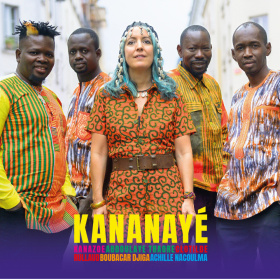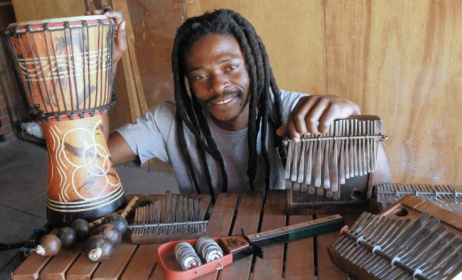Rwanda: Jules Sentore to pay homage to gakondo music
On 5 July, Jules Sentore will headline the third edition of the Inganzo Yaratabaye (Music Liberation) concert at Camp Kigali in Rwanda.
 Jules Santore.
Jules Santore.
This year's edition is organised by RG-Consult, an East African marketing, events management and consulting company based in Rwanda. The event seeks to spread awareness of the gakondo genre through song and dance.
Gakondo is a style that emerged when the Rwandese genocide erupted in 1994. While the Tutsi and the Hutu went to war, traditional musicians – namely Mzee Santore, Michael Ngabo and Marcel Natzida – wrote liberation songs that spoke about peace, which would later become known as gakondo.
After the Rwandan Patriotic Front ended the genocide in the same year it started, other musicians began creating music in the genre.
“I chose to make cultural music because my family trained me, it’s a family legacy," Sentore told Music In Africa ahead of the concert. "I feel so excited and look forward to entertaining my fans, especially the lovers of gakondo music and lovers of culture.”
Other artists set to perform include the Ibihame Cultural Troupe, Gakondo Group, Masamba Intore and Ingangare (Belgium).
RG-Consult communications and PR officer Axelle Umutesi said apart from promoting gakondo, the event would also pay tribute to musicians who continue to release socially conscious music.
“Now that we are liberated and the country is moving forward in these modern times, and as we are different from other festivals, we would like to continue connecting the old and young people," Umutesi said. “We would like the youth to participate in building the country in every way, even through music.
“There are so many things that today's artists can sing about, such as unemployment and drug abuse. I would love to hear more artists sing about things that shape society such as gender equality and advocacy for justice.”
Umutesi said despite the concert being popular among all Rwandese, the mainstream media in Rwanda was yet to extend its support.
“It’s not as popular, especially since all radios are urban stations these days, but it is without a doubt the music that cuts across all age groups; it has more fans than the rest of the genres,” he said
“Media should promote this style of music more than they promote the rest because it’s not only a style that makes you dance but also builds, teaches good morals, challenges and influences society to be better, and shapes the younger generation contrary to most modern styles.”






















Commentaires
s'identifier or register to post comments